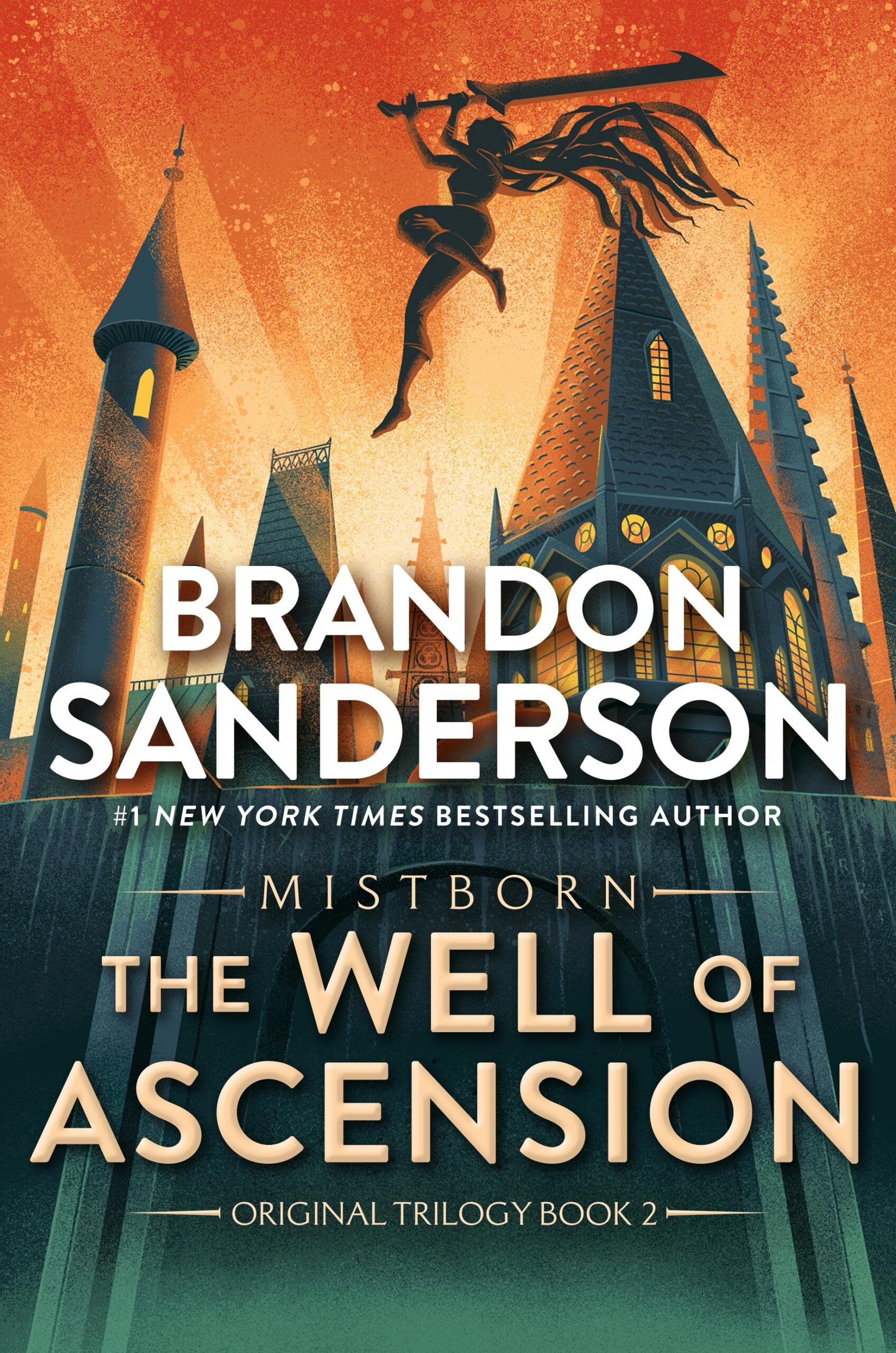
The Well of Ascension
44
by Sanderson, BrandonIn the cold morning, Breeze observes Cett’s army withdrawing and senses Clubs’s uncharacteristic tension. Despite the apparent standoff between the remaining armies, Clubs believes the situation is dire. He explains that Straff Venture, Elend’s father, will soon realize he can let the koloss—ferocious creatures—attack the city first, sparing his own forces. This strategy would leave Luthadel devastated, allowing Straff to claim the atium and symbolic victory with minimal effort. Breeze, though unsettled by Clubs’s grim assessment, trusts his judgment and realizes their precarious position.
Meanwhile, Ham reports to Elend about the aftermath of Vin’s attack on Cett’s forces, which resulted in significant casualties. Ham is baffled by Vin’s actions, as such aggression is uncharacteristic of her. Spook dismisses her behavior as irrational, but Elend struggles to defend her, admitting he doesn’t fully understand her motives. The conversation shifts to the broader implications of the attack, with Ham expressing exhaustion over the relentless military and political pressures. Elend, though equally weary, acknowledges the necessity of their roles in the crisis.
The chapter highlights the growing desperation within Luthadel’s leadership. Clubs’s prediction of Straff’s calculated withdrawal underscores the city’s vulnerability, while Vin’s unexplained violence adds to the tension. Elend’s inability to reconcile Vin’s actions with her usual demeanor reflects his broader struggle to maintain control. The characters’ fatigue and resignation hint at the looming collapse, as external threats and internal discord erode their resolve.
Ultimately, the chapter paints a bleak picture of Luthadel’s prospects. The withdrawal of Cett’s army and Straff’s impending strategy signal an inevitable assault, leaving the defenders with few options. Vin’s erratic behavior further complicates matters, leaving Elend and his allies grappling with uncertainty. The narrative emphasizes the fragility of their position, setting the stage for the city’s impending confrontation with destruction.
FAQs
1. What strategic realization does Clubs share with Breeze about Straff Venture’s likely next move?
Answer:
Clubs explains that Straff Venture will likely withdraw his forces and let the koloss attack Luthadel first. This strategy would allow Straff to avoid direct conflict with both Cett’s forces and the city’s defenders, letting the koloss weaken or destroy them. After the koloss have done their damage, Straff can return to claim the atium and the city with minimal resistance. This reveals Straff’s ruthless pragmatism—he cares more about securing the atium and symbolic victory than preserving lives in Luthadel (Clubs notes: “Straff will face one weakened enemy instead of two strong ones”).2. How does Ham contextualize the significance of Vin’s attack on Cett’s forces?
Answer:
Ham highlights the unprecedented lethality of Vin’s assault by comparing it to conventional warfare standards. While most armies break after suffering 30-40% casualties over an entire day of fighting, Vin inflicted 30% casualties (300 of Cett’s 1,000 men) in under ten minutes. This demonstrates not only Vin’s extraordinary combat prowess but also the psychological and tactical shock such an attack would have on an enemy force. Ham’s analysis underscores how Vin’s actions defy normal military expectations, leaving Cett’s forces severely diminished and likely demoralized.3. What contrasting perspectives on Luthadel’s survival are presented by Clubs and Breeze in this chapter?
Answer:
Clubs maintains a grimly realistic outlook, stating that Luthadel was “dead the moment that first army got here” and that their efforts have only delayed the inevitable. Breeze, while initially skeptical, comes to trust Clubs’ assessment after observing his uncharacteristic tension and tapping fingers—subtle signs of genuine concern. This contrast highlights Clubs’ military pragmatism versus Breeze’s more optimistic reliance on social manipulation. Their exchange reveals the dire strategic situation: even with Cett’s withdrawal, the koloss threat remains, and Straff’s calculated patience will likely lead to the city’s fall.4. Why does Spook call Vin “loony,” and how does Elend respond to this characterization?
Answer:
Spook dismisses Vin’s attack on Cett as irrational (“loony”), likely due to its seemingly reckless violence without clear justification. Elend initially wants to defend Vin but struggles to explain her actions, admitting uncertainty about her motives beyond her suspicion that Cett—not Straff—sent the Assembly assassins. This moment reveals Elend’s conflicted feelings: he trusts Vin but doesn’t fully understand her methods. It also hints at Vin’s growing isolation and potential emotional instability, as her extreme actions (like the massacre) aren’t easily explained by tactical logic alone.
Quotes
1. “This’ll end when Straff figures it out… That those koloss will do his job for him, if he lets them.”
Clubs delivers this chilling assessment of their strategic situation, revealing that Straff Venture could simply withdraw and let the koloss destroy Luthadel—a pragmatic but brutal military calculation that spells doom for the city.
2. “We were dead the moment that first army got here, Breeze. We’re just good at stalling.”
Clubs’ grim fatalism underscores the hopelessness of their position, suggesting their earlier successes were merely delaying the inevitable collapse against overwhelming forces.
3. “Even on a battlefield, most armies will break if they take thirty or forty percent casualties in the course of an entire day’s fighting.”
Ham’s analysis of Vin’s devastating attack on Cett’s forces highlights her terrifying combat prowess and the psychological impact of such rapid, overwhelming violence.
4. “Of course, I’d just prefer to be in my chair, reading quietly. We do what we must.”
Elend’s internal reflection captures the central tension of leadership—the sacrifice of personal desires for duty—while subtly contrasting his scholarly nature with the brutal realities of war.
